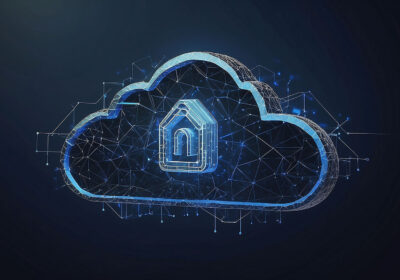The internet, today, is seen as the key that unlocks a lucrative future for businesses. For this, the businesses need to have an identity in the digital realm, and that we refer to that ‘identity’ as websites. People access the internet and visit websites to get information on products and services they are interested to buy. But for the business, a website isn’t actually the beginning.
Before creating a website, they need to find a ‘home’ for it. That is what web hosting is all about. A good web hosting solution and an appealing website can take a business quite far in the digital world.
Getting back to the topic at hand, the web hosting server which houses a business’ website will have all the important files and information of the website in it as well. If someone else other than the business owner gets an unauthorized access to those data, it basically spells DOOM for the business. This is why business owners should be extra careful when it comes to securing their web hosting servers.
Here are a few things you can do to secure those servers from cyber-attacks and other threats.
1. Ask your web host if SFTP is available
FTP or File Transfer Protocol is basically what you use to upload files to the hosting server. It’s quite secure but still open to attacks. There will always be that security risk. So go for secure FTP or SFTP instead, as it’ll have an extra layer of protection.
2. Keep changing the password at regular intervals
This is by far the most obvious and the easiest way to minimize risks of an attack to your server. If you keep changing the password, hackers won’t have an easy time figuring it out.
3. Always keep cPanel updated
cPanel is a Linux-based control panel widely used in the web hosting industry. With every update, many issues from the previous versions are fixed while improving performance. The updates generally also address security concerns. So make sure you keep cPanel updated. You can enable Auto Update from the Configuration settings.
4. Firewall your cPanel servers
You probably know that Firewalls prevent unauthorized accesses. So use firewalls to fortify your cPanel and thwart attempts to get through it. You can find a lot of good Firewalls specifically designed to protect cPanel servers.
5. Activate cPHulk in cPanel
cPHulk is your best bet against brute force attacks. Brute force attack is basically a password identification technique where a persistent key search is executed which checks every possible character combinations to get the right password. Brute force attacks can give hackers access to even encrypted data.
To enable the defense mechanism, go to the Security Center tab in the Web Host Manager (WHM), and simply enable cPHulk.
6. Antivirus
The internet might bring you a lot of profitable business opportunities. But it’s also a medium for viruses. The server, by itself, will always be at a risk of virus infection, which is why it’s a good idea to have antivirus for your cPanel.
7. Rootkit scanners
A rootkit is a malicious program designed to infiltrate servers without getting detected. Most anti-virus applications have a difficult time detecting rootkits. So in addition to an antivirus program, you should also set up rootkit scanner, adding to the security.
8. Remove accounts that you don’t need anymore
Accounts in the web server are also not safe from hackers. These accounts give privileges to users so as to access appropriate data and use certain features. However, over time, a web server can have unused accounts that are not needed anymore. It’s wise to remove them so that they won’t exploited to get a backdoor access to the server.
9. Make sure unknown users cannot upload files to the server
This is a ‘Settings’ issue where the option in settings that allow unknown users to upload files to the server is enabled. You need to make sure that only authorized users are allowed to do this. To disable this option, go to WHM, proceed to Server Configuration and then to FTP Server Configuration.
10. Backups
It’s not just cyber-attacks that you need to worry about. It’s best to always prepare for a server crash as well. That’s why backups are necessary. Regularly back up your data so that in case there’s a server crash, you can get the system up and running in no time.
End-note
Security for your website and your web server is as important as marketing your business online. Proper security measures should be undertaken to secure sensitive data of the users visiting your website. Hopefully, the tips mentioned above should reduce some risks and add to the security of your web hosting server.





